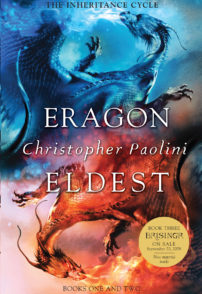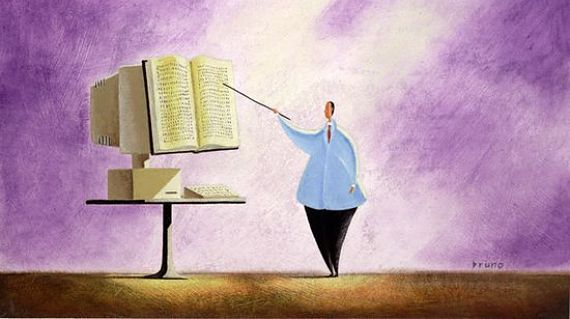Literary critics
This was going to be a youtube comment to the Viajando Entre Letras video "Can you judge a book without being a literary critic?" Link , but as it was going to be too long I decided to make it a blog post.
Critics, let's call them academical critics, look much more than non-academics at the use of language for language's sake; that is, they look at the ways of using this tool valuing it equivalently, or even more so, to the story that is being told with that tool.
I remember, for example, reading a review of Paolini's books of the Inheritance Cycle (Eragon), saying that his writing had matured, or something like that. Well, there is a marked increase in books 3 and 4 of that tetralogy in metaphors and comparisons. However, while that shows an increase in skill in his use of language, it doesn't make the story itself, or the characters, any better or worse (of course there is a some effect in the skillful use of language in order to tell good stories and characters, but it is the emphasis on this that I am referring to), and my favorite writing of his in linguistic terms alone are those in books 1 and 2, especially the latter, which is where there is a transition to that richer style in linguistic devices that also makes each chapter, and thus the final two books, much longer than the first two.

A musical comparison will perhaps enlighten my point: the most complicated version of a piece to play is what will generate the most admiration for the skill of the artist, but that will not necessarily be the prettiest version of the music for listening to it; for example, my favorite piano version of Howl's Moving Castle Theme is not the most complicated version of it that I could find on YouTube.
This leads me, in turn, into that distinction that has always bothered me a bit: commercial literature vs. high literature or "literary" literature. I have always thought that behind it there is a kind of elitism or arrogance, not from a group necessarily, it can be individual; but I am bothered by the way of speaking in which it seems to indicate that "if you don't like the things I like, it is that your literary taste is not educated". "If something sells a lot, it must not be very good or sophisticated, because few understand high literature, but we do and that's why we publish it [in the case of publishers] even if it doesn't make much profit."

Perhaps those who call certain things high literature, literary literature, or non-commercial literature, fall into the error that in the trilogy of C. Auguste Dupin -the private investigator created by Edgar Allan Poe- it is refered to as confusing the complex with the profound? In Dupin's first story, The Murders in the Rue Morgue, Dupin's anonymous narrator friend illustrates this idea by comparing checkers and chess: 'chess is more complex because of the diversity of moves of the distinct pieces, but the game of checkers is deeper because it requires of the players a greater appreciation of the opponent's mind, of what he is thinking, as all the pieces have the same kind of move, whereas in chess the capacity for intense concentration for long periods of time becomes more important relative to wit.
Apparently, for me, this would have been the reason why fantasy works were half despised by "the critics": as Michael Moorcock pointed out in an interview, fantasy deals with the same great issues of humanity as non-fantasy, but it does it more openly: less sophistication or complexity in dealing with the issues. But the major attraction is just that: the deep themes are there, superficially, and that they are in a more superficial form does not detract from their depth, and sometimes they can even get lost from conscious view because they are too superficially exposed.
Finally, a word about "criticism" as an aggregate: reviews from people one already knows more or less what their tastes are and what they are looking for in stories may be worth more than those from critics who are totally anonymous to one; these can serve to stimulate thought, since after all you don't need to know who wrote something for that something already written to stimulate you, but it is not the best guide to know what one should read, and the same book could be memorable and moving for a reader if they read it at a specific stage of their life and pass without much attention if they read it at another.
*** Translated with help from www.DeepL.com/Translator (free version) ***
Críticos literarios
Este iba a ser un comentario en youtube al video de Viajando Entre Letras “¿Se puede juzgar un libro sin ser crítico literario?” Link , pero como iba a quedar muy largo decidí hacer un artículo de blog.
Los críticos, digámosles académicos, se fijan mucho más que los no académicos en el uso del lenguaje por el lenguaje mismo; es decir, se fijan en las formas de utilizar esta herramienta equivalentemente, o aun mas, a la historia que se está contando con esa herramienta.
Recuerdo, por ejemplo, haber leído alguna crítica sobre los libros de Paolini del Ciclo El legado (Eragon), diciendo que su escritura había madurado, o algo por el estilo. Pues bien, hay una marcado incremento en los libros 3 y 4 de esa tetralogía de las metáforas y comparaciones. No obstante, mientras que eso muestra un incremento de habilidad en su uso del lenguaje, no hace a la historia en sí, ni a los personajes, mejores o peores (claro que hay un mínimo de efecto en el uso hábil del lenguaje para poder contar buenas historias y personajes, pero es el énfasis en esto a lo que me refiero), y mi escritura favorita suya en términos sólo lingüísticos son los de los libros 1 y 2, especialmente este último, que es donde hay una transición hacia ese estilo más rico en recursos lingüísticos que también vuelve cada capítulo, y por ende los dos libros finales, mucho más largos que los primeros dos.

Una comparación musical tal vez esclarezca: la versión más complicada de tocar de una pieza es lo que más admiración por la habilidad del artista generará, pero no necesariamente será esa la versión más linda de la música; por ejemplo, mi versión favorita para piano del Howl’s Moving Castle Theme no es la más complicada de ella que pude encontrar en Youtube.
Esto me lleva, a su vez, en esa distinción que siempre e ha molestado un poco: literatura comercial vs alta literatura o literatura “literaria”. Siempre he pensado que detrás hay una especie de elitismo o arrogancia, no de grupo necesariamente, puede ser individual; pero me molesta la forma de hablar en que parece indicarse que “si no te gustan las cosas que me gustan a mí, es que tu gusto literario no está educado”. “Si algo vende mucho, muy bueno o sofisticado no ha de ser, porque pocos entienden la alta literatura, pero nosotros sí y por eso la publicamos [en el caso de editores] aunque no de muchas ganancias”.

¿Tal vez aquellos que llaman a ciertas cosas alta literatura, literatura literaria, o no comercial, caigan en el error que en la trilogía de C. Auguste Dupin –el investigador privado creado por Edgar Allan Poe– refieren como confundir lo complejo con lo profundo? En la primera historia de Dupin, Los Asesinatos de la calle Morgue, el narrador anónimo amigo de Dupin ilustra esta idea comparando las damas y el ajedrez: el ajedrez es más complejo por la diversidad de movimientos de las distintas piezas, pero el juego de damas es más profundo porque requiere de los jugadores una apreciación mayor de la mente del contrincante, de lo que está pensando, al tener todas las piezas el mismo tipo de movimiento, mientras que en el ajedrez cobra más importancia, relativo al ingenio, la capacidad de concentración intensa por largos períodos de tiempo.
Aparentemente, para mí, esta habría sido la razón de que las obras de fantasía estuvieran medio despreciadas por “la crítica”: como bien señaló Michael Moorcock en alguna entrevista, la fantasía trata de los mismos grandes temas de la humanidad que la no fantasía, pero lo hace más abiertamente: menos sofisticación o complejidad para tratar los temas. Pero el atractivo mayor está justamente en eso: allí están, superficialmente, los temas profundos, y que estén en una forma más superficial no les quita su profundidad, y a veces incluso pueden perderse de vista conscientemente por estar demasiado superficialmente expuestos.
Finalmente, una palabra sobre “la crítica” como un agregado: pueden valen más las críticas de las personas que ya conoces más o menos cuáles son sus gustos y qué busca en historias que las de los críticos que me sean totalmente anónimos; estos pueden servir para estimular el pensamiento, pues al fin y al cabo no hace falta conocer quién escribió algo para que ese algo ya escrito te estimule, pero no es la mejor guía para saber qué debe leer uno, y un mismo libro podría ser memorable y conmovedor para un lector si lo leyera en una etapa específica de su vida y pasar sin mucha atención si lo leyera en otro.
The rewards earned on this comment will go directly to the people( @santiago-yocoy ) sharing the post on Twitter as long as they are registered with @poshtoken. Sign up at https://hiveposh.com.